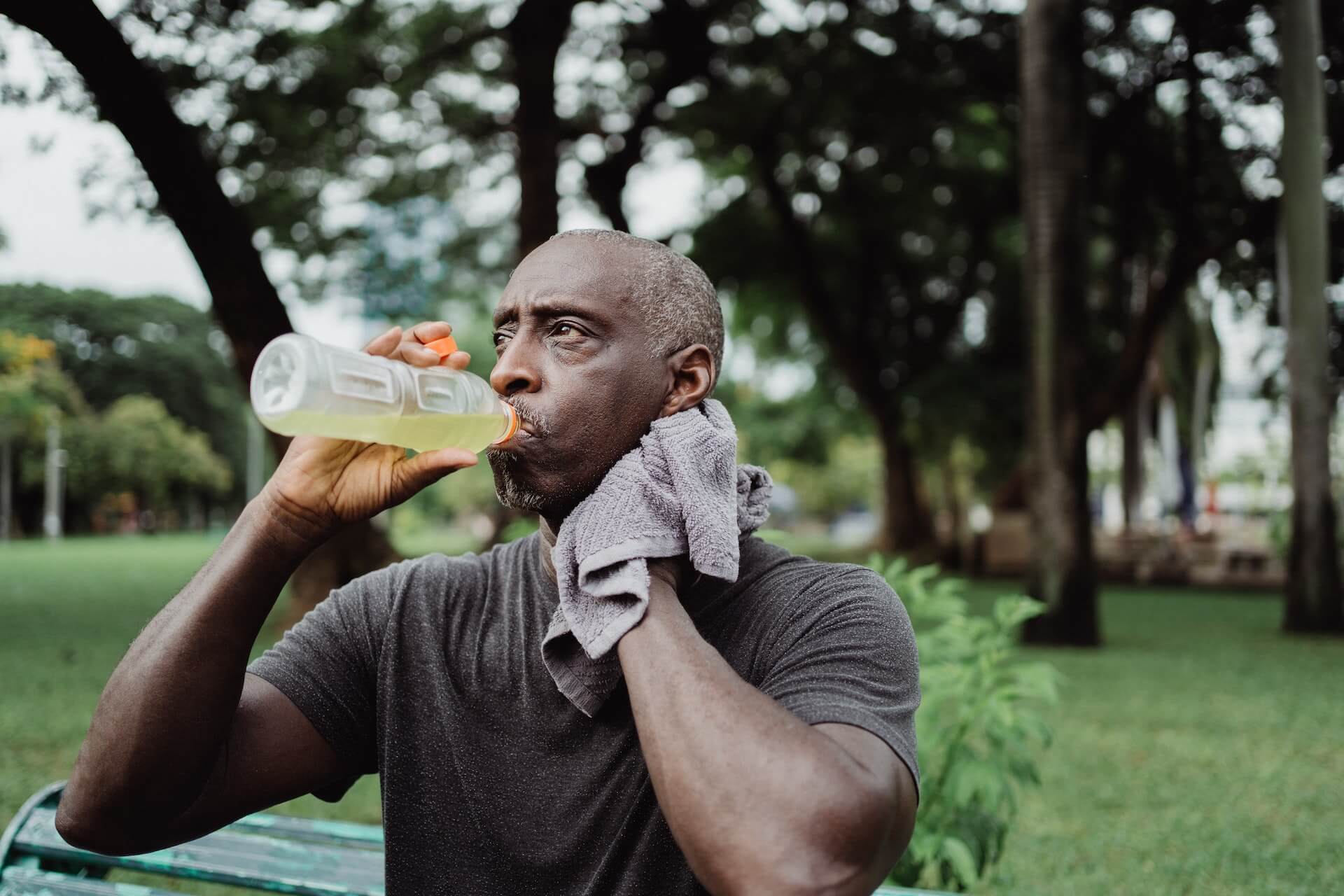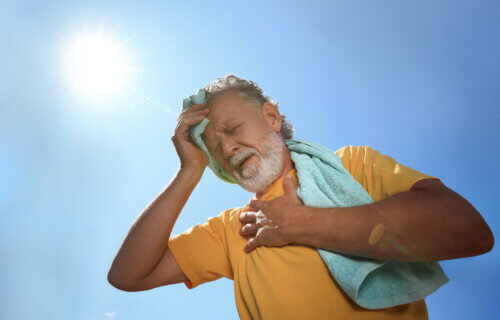DALLAS — Climate scientists are warning that extreme heat, resulting from global warming, could potentially triple cardiovascular-related deaths within the next 50 years. Scientists predict that if minimal efforts are made to reduce emissions, deaths due to cardiovascular issues, such as stroke and heart attack, influenced by heat could see an increase of up to 233 percent in the coming 13 to 47 years.
A research team working with the American Heart Association also highlights an increased prevalence of deaths among elderly and Black individuals. They stress that more than double the current cardiovascular death rates across the United States could be attributable to elevated temperatures.
The study underscores the necessity of adopting more aggressive policies to curtail greenhouse gas emissions, researchers say, which could significantly reduce the number of deaths resulting from extreme heat. Currently, the United States witnesses one death every 33 seconds due to cardiovascular diseases, which encompass a range of conditions affecting the heart and blood vessels.
Between the years 2008 and 2019, extreme heat conditions in the U.S. displayed a link to an additional 1,651 cardiovascular deaths each summer. The study emphasizes that the trajectory of greenhouse gas emissions in the forthcoming decades will play a crucial role in influencing extreme heat conditions and, subsequently, public health.
Researchers at the University of Pennsylvania, who conducted the study, previously analyzed county-by-county data in the U.S. from 2008 to 2017. They demonstrated a clear link between an increased number of extreme heat days and a rise in cardiovascular deaths. This past data served as a foundational benchmark for the new study, which utilized models to project future greenhouse gas emissions, as well as future socioeconomic and demographic trends in the U.S. population for the years 2036 to 2065.
The researchers estimated the excess number of cardiovascular deaths associated with extreme heat by comparing the predicted number of deaths for each county in the absence of extreme heat to the number of excess deaths that would occur if the projected number of extreme heat days transpired. Their analysis revealed that even if currently proposed emission reductions were fully implemented and adhered to, excess cardiovascular deaths due to extreme heat would still be 162 percent higher by mid-century, compared to the 2008-2019 baseline. On the other hand, if greenhouse gas emission reductions were not strictly implemented, projections indicate that excess cardiovascular deaths due to extreme heat could increase by 233 percent in the upcoming decades.

The study also highlights that the implementation of green policies plays a crucial role in determining health outcomes. Adults 65 and older are projected to experience a 2.9 to 3.5 times greater increase in cardiovascular death due to extreme heat compared to those between the ages of 20 and 64. Moreover, non-Hispanic black adults are projected to experience a 3.8 to 4.6 times greater increase in cardiovascular death due to extreme heat compared to non-Hispanic White adults, depending on the strictness of the implementation and adherence to green policies.
Interestingly, the projected increases in deaths due to extreme heat did not show significant differences among adults in other racial or ethnic groups or between genders.
The study’s lead author, Dr. Sameed Khatana, an assistant professor of medicine at the University of Pennsylvania and a staff cardiologist at the Philadelphia Veterans Affairs Medical Center, emphasized the increasing impact of climate change on our lives.
“Climate change and its many manifestations will play an increasingly important role on the health of communities around the world in the coming decades,” says Dr. Sameed Khatana, the study’s lead author, in a media release.
“Climate change is also a health equity issue as it will impact certain individuals and populations to a disproportionate degree and may exacerbate preexisting health disparities in the U.S.”
“The magnitude of the percent increase was surprising. This increase accounts for not only the known association between cardiovascular deaths and extreme heat, but it is also impacted by the population getting older and the proportionate increases in the number of people from other races and/or ethnicities in the U.S.,” Khatana continues in a statement.
“Previous studies have suggested Black residents may have less access to air conditioning; less tree cover; and a higher degree of the ‘urban heat island effect’ — built-up areas having a greater increase in temperature than surrounding less-developed areas,” Khatana explains. “Living conditions may also have a role in terms of social isolation, which is experienced by some older adults and has previously been linked with a higher probability of death from extreme heat.”
The study’s projections raise questions about whether infrastructure interventions, such as increasing tree cover in certain neighborhoods, could mitigate the impact of extreme heat in the U.S., drawing parallels with findings from some European studies.
As a baseline for their analysis, the researchers utilized county-by-county records from 2008-2019, focusing on deaths during summer months with a primary cause of any cardiovascular condition. They also considered related data such as age, sex, race, ethnicity, and the number of extreme heat days—defined as days with a maximum heat index of 90°F (32.22°C) or higher — during the month of each death. The heat index, reflecting the human body’s experience of heat by considering both temperature and humidity, was crucial in this study, as high humidity can interfere with the body’s ability to cool down through sweating.
How to stay cool during extreme heat
Extreme heat is becoming more common due to climate change. Heatwaves can be dangerous, especially for vulnerable populations such as the elderly, the young, and those with chronic health conditions. It is important to know how to stay cool during extreme heat to avoid heat-related illness.
Stay hydrated: Drinking plenty of fluids is essential for staying cool during extreme heat. Even if you don’t feel thirsty, drink water regularly throughout the day. Avoid sugary drinks, such as soda and juice, as they can dehydrate you.
Stay in the shade: If possible, stay in the shade when you are outdoors. This will help you to avoid the direct heat of the sun. If you must be in the sun, wear a wide-brimmed hat and sunglasses to protect yourself from the sun’s ultraviolet (UV) rays.
Wear loose-fitting clothing: Wear loose-fitting, lightweight clothing made from natural fabrics such as cotton or linen. This will help to keep you cool and comfortable.
Take cool baths or showers: Taking a cool bath or shower can help lower your body temperature and cool you down. If you don’t have access to a shower, you can wet a towel with cool water and place it on your neck or wrists.
Use a fan: A fan can help to circulate the air and make you feel cooler. If you have a central air conditioning system, run it to keep your home cool.
Avoid strenuous activity: Avoid strenuous physical activity during extreme heat. If you must be active, do so during the coolest part of the day, which is usually early in the morning or late in the evening.
Monitor for signs of heat-related illness: The signs of heat-related illness include headache, dizziness, nausea, vomiting, muscle cramps, and heavy sweating. If you experience any of these symptoms, seek medical attention immediately.
Additional tips for staying cool during extreme heat
- Close your curtains during the day to keep the heat out of your home.
- Open your windows at night to let the cool air in.
- Cook with your microwave or oven as little as possible.
- Eat cool, refreshing foods such as fruits and vegetables.
- Avoid alcohol and caffeine, as they can dehydrate you.
South West News Service writer James Gamble contributed to this report.


Yeah… An by now, we were supposed to have an ice age according to scientists in the 70s
Biggest pile of bovine excrement ever put on paper.!
The excess deaths are due to the poisons that were inflicted on everyone through the Covid vaccines.
Heat has nothing to do with it.
In England people were dying because the temperature was 29c whilst we were experiencing 35c every day.
The fact that people do not call out this crap for what it is, allows the government to keep on stealing your money and your lives.
Amen, PJ L!!
Yet another “sky is falling” / “never let a good crisis (even a fabricated one) go to waste” attempt to gain power, control and money by those Marxists wanting to own everything and everyone…